PEDIATRIC NEUROLOGICAL PHYSIOTHERAPY
Prosense offers modern treatments that can aid in the rehabilitation of various dysfunctions your child may have. Discover all the benefits!
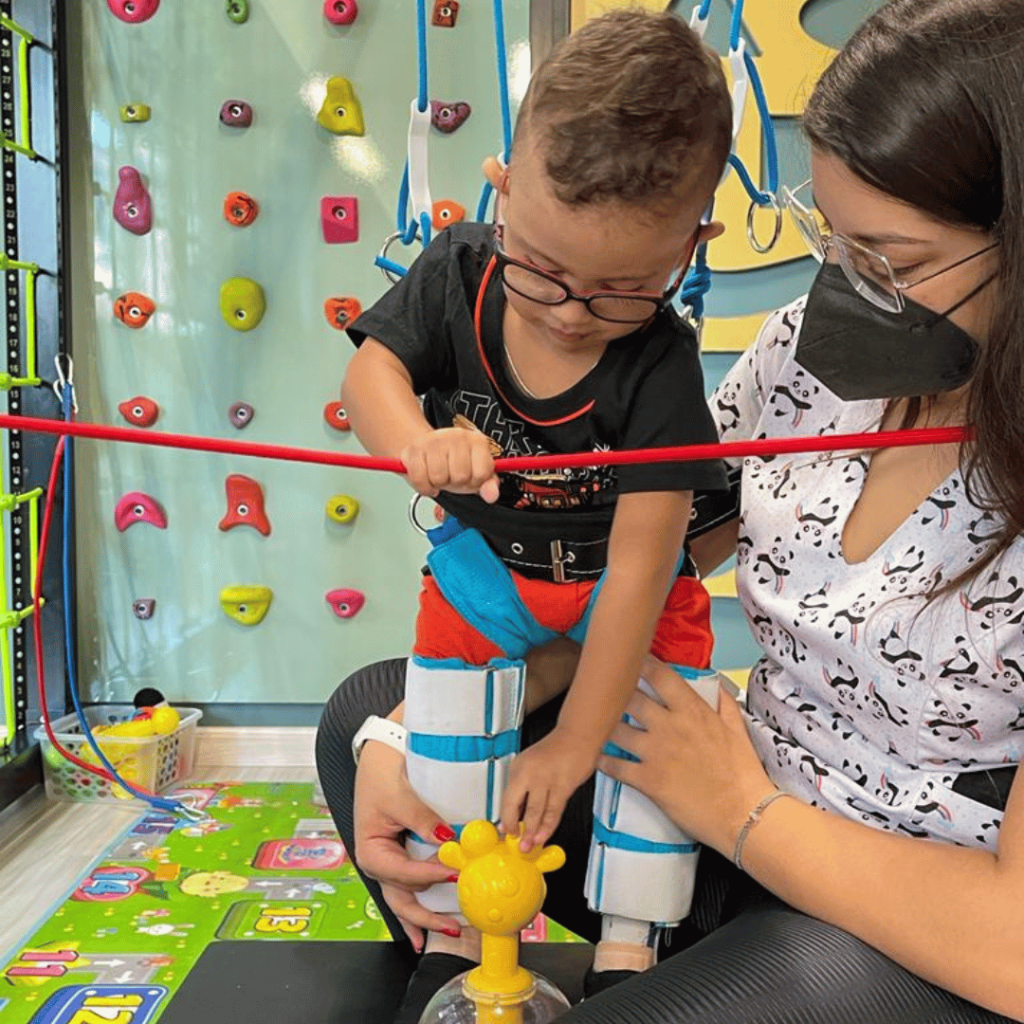
SIMPLE APPROACH TO PEDIATRIC REHABILITATION
At the start of the pediatric rehabilitation process, we recommend a multidisciplinary treatment coordinated by physiotherapists, psychologists, occupational therapists, speech therapists, and educators. The primary focus is on neuropsychomotor development, aiming to maximize each child’s functional abilities.
Our approach begins with a comprehensive assessment conducted by a neurofunctional physiotherapist to understand each child’s specific needs. Based on this assessment, personalized strategies are developed, which may include therapeutic interventions such as early stimulation, the use of orthotics/prosthetics/assistive walking devices when necessary, medication prescriptions, and the implementation of procedures and strategies to optimize therapy outcomes, all tailored to the individuality of each child.
Prosense aims to provide an effective and personalized therapeutic environment, ensuring that each child reaches their maximum neuropsychomotor potential.
TRANSFORMING YOUR CHILD'S PATH
At Prosense Clinic, our passionate team of neurofunctional physiotherapists, speech therapists, and pediatric therapists is fully dedicated to pediatric rehabilitation. We firmly believe that children’s full development is achieved through an integrated approach, where the active participation of parents and family members is essential. At Prosense, we build our philosophy on the conviction that collaboration between professionals and families is the cornerstone of therapeutic success.
We understand that the pediatric rehabilitation journey goes beyond clinical treatment. At Prosense, we strongly encourage the active involvement of parents and family members throughout the therapeutic process. We are committed to creating an environment where everyone works together for the well-being and progress of the children.
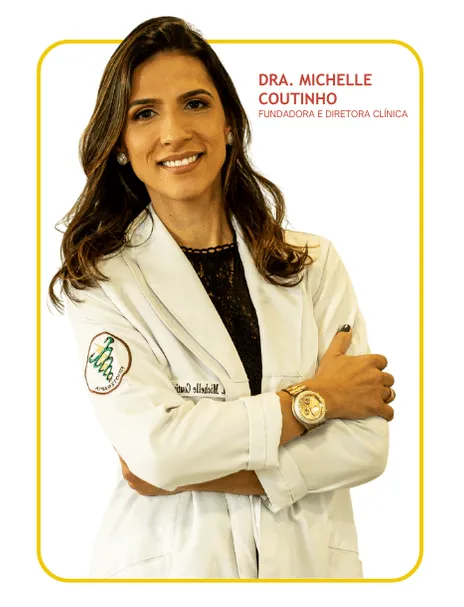
EXPERTISE IN PEDIATRIC NEUROLOGICAL REHABILITATION
Our team of pediatric physiotherapists possesses special skills and extensive experience in treating infants, children, adolescents, and transitioning into adulthood. If you have concerns about your child’s development, such as sitting, crawling, walking, and other skills, we are ready to provide assistance and support. Remember, a diagnosis does not determine destiny!
We actively encourage family members and caregivers to participate in therapy and set realistic goals. Prosense Clinic, with over 14 years of experience in the field, has made a unique impact on people’s lives, amassing expertise in various areas of neurological rehabilitation.
If you seek comprehensive pediatric care for your child, contact us or click here to chat on WhatsApp and schedule your evaluation! Also, explore our home care services. We are here to offer the best care for your little one!
ORIGIN OF NEUROLOGICAL DYSFUNCTIONS
Neurological disorders in children can arise in various ways, whether due to congenital issues, genetic factors, or as a result of accidents and incidents. Pediatric neurological physiotherapy emerges as a powerful ally in improving various clinical conditions, regardless of their origins. Our goal is to enhance muscle strength, increase joint mobility, and promote independence in the child’s daily activities.
There are various types of pediatric neurological disorders, often overlapping. Some examples of these disorders include:
CONGENITAL DISORDERS
It occurs as a result of problems in the development of the nervous system during the gestational period or at birth
Acephaly refers to the absence or severe deformity of the head.
Cerebral palsy is a neuromotor disorder that affects muscle coordination and movement due to damage to the developing brain. This damage can occur before, during, or after birth. The condition manifests in various ways, impacting the motor function, posture, and balance of the affected individual.
Hydrocephalus is a medical condition characterized by the abnormal accumulation of cerebrospinal fluid in the brain, leading to increased intracranial pressure. This can result in brain tissue damage and neurological complications.
Spina bifida is a congenital condition where there is a failure in the proper closure of the spinal column during fetal development. This can result in spinal cord damage, leading to neurological and physical problems.
Microcephaly is a condition where a baby’s head is significantly smaller than expected for their age and sex, usually due to impaired brain development. It can result in cognitive and physical challenges, requiring specialized care.
ACQUIRED DISORDERS
It occurs after birth.
Traumatic brain injury (TBI) refers to head injuries resulting from violent impacts, accidents, or wounds. It can cause brain damage, leading to a variety of symptoms, such as loss of consciousness, amnesia, severe headaches, and cognitive disturbances.
A nerve injury occurs when nerves are damaged due to trauma, compression, or cuts. This can result in symptoms such as loss of sensation, muscle weakness, and pain.
Brain tumors are abnormal growths of cells in the brain that can be benign or malignant. These tumors can cause symptoms such as headaches, changes in vision, and neurological problems.
A stroke, or cerebrovascular accident (CVA), is a condition where there is a sudden interruption of blood flow to the brain, causing cellular damage. This can lead to symptoms such as weakness, speech difficulties, loss of sensation, and coordination problems.
Infectious diseases of the central nervous system are conditions caused by infections that affect the brain and spinal cord. They can be caused by viruses, bacteria, fungi, or parasites. Examples include meningitis and encephalitis. These infections can result in symptoms such as fever, headache, neck stiffness, and neurological changes.
DEVELOPMENTAL DISORDERS
It occurs at some stage of the child’s development and can hinder proper development.
Dyspraxia is a neuromotor disorder that affects the ability to plan and coordinate voluntary movements, impairing the execution of complex motor tasks. It can manifest as difficulties in motor coordination, balance, fine motor skills, and motor planning.
A key term that describes a range of symptoms affecting movement and posture, caused by damage to the baby’s brain, can be described as:
- Spastic Cerebral Palsy
- Athetoid Cerebral Palsy
- Ataxic Cerebral Palsy
- Mixed Cerebral Palsy
Ataxia is a neurological disorder that affects movement coordination and balance. Characterized by uncoordinated movements and instability, ataxia can result from various causes, including brain injuries, genetic conditions, or acquired neurological disorders. Symptoms include difficulty walking, imprecise movements, and lack of motor coordination.
SPINAL CORD DISORDERS
They include any condition that affects the child’s spinal cord.
Which can be complete or incomplete, and this will significantly affect the child’s functional condition.
Traumatic spinal cord injury in children refers to damage to the spinal cord caused by traumas such as falls, accidents, or sports injuries. This condition can result in loss of sensation, motor control, and in severe cases, paralysis.
Chronic inflammation of the spinal cord, also known as transverse myelitis in children, refers to a condition where inflammation occurs in the spinal cord, affecting nerve signal transmission. This can result in symptoms such as weakness, sensory changes, and bladder dysfunction.
Multiple sclerosis (MS) in children is an autoimmune neurological condition that affects the central nervous system, causing damage to the myelin, the protective layer of the nerves. This can lead to a variety of symptoms, such as fatigue, muscle weakness, and coordination problems.
Spina bifida in children is a congenital malformation where there is abnormal spinal development during gestation. This can result in damage to the spinal cord and nerves, affecting motor and sensory control. Symptoms vary and may include mobility issues, and difficulties with bladder and bowel control.
Sacral agenesis in children is a rare congenital condition characterized by the absence or underdevelopment of the lower portion of the spine and the sacral region. This can affect the functioning of pelvic organs and associated nerves. Symptoms may include skeletal deformities, gastrointestinal dysfunctions, and genitourinary issues.
PHYSIOTHERAPY TREATMENT
The physiotherapist plays a crucial role in neurological rehabilitation, fully engaging in the work to drive the patient’s improvement. At Prosense Clinic, our professionals don’t just administer treatments; they start by getting to know your child deeply. We understand their abilities and challenges, developing a treatment plan tailored to their needs and tolerance. Physiotherapy treatment is sure to not only enhance function but also improve your child’s quality of life and ability to face life’s challenges.
Our physiotherapists work synergistically with other healthcare professionals to create a comprehensive care plan that considers your child as a whole being: body, mind, and soul. We are supported by nutritionists, neurologists, psychologists, and occupational and existential therapists.
Schedule a consultation to provide your child with comprehensive pediatric care. Also, explore our home care services for added convenience. We are here to support your child’s healthy development.
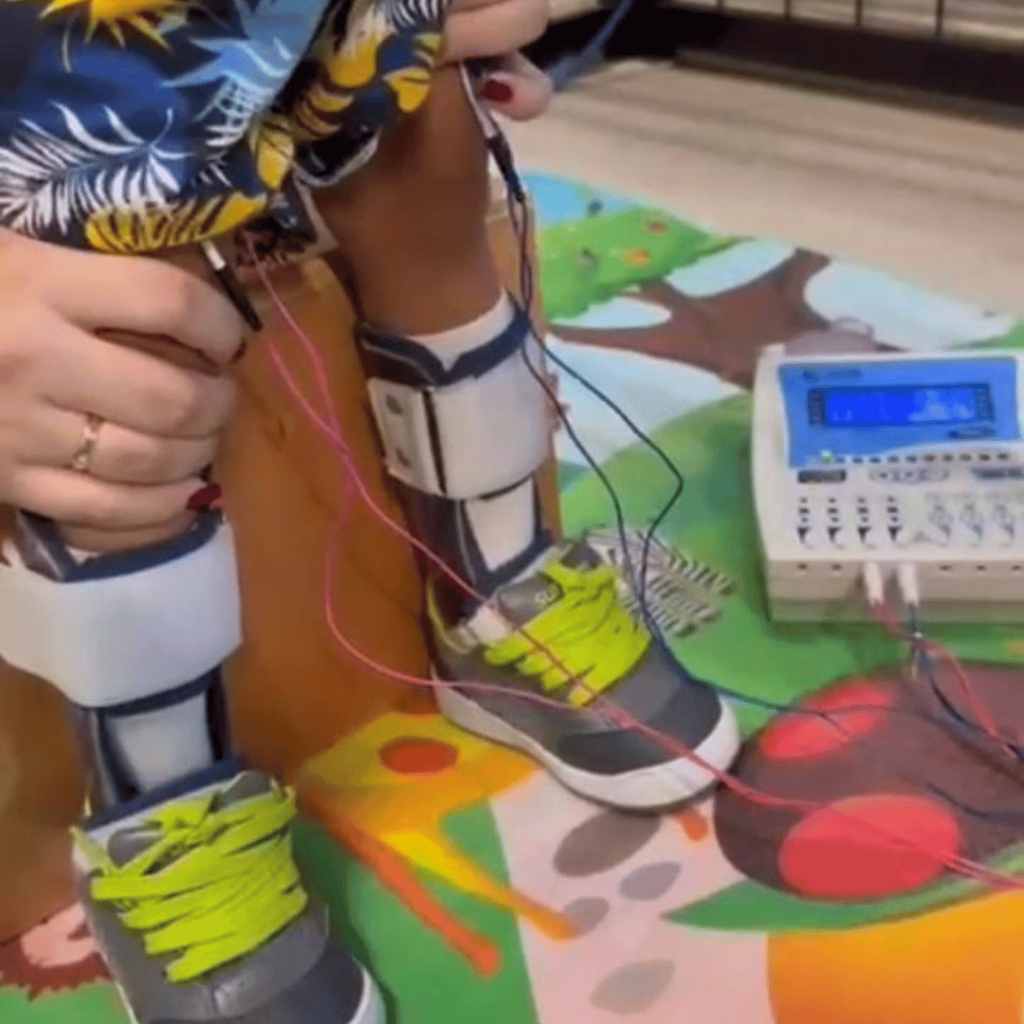
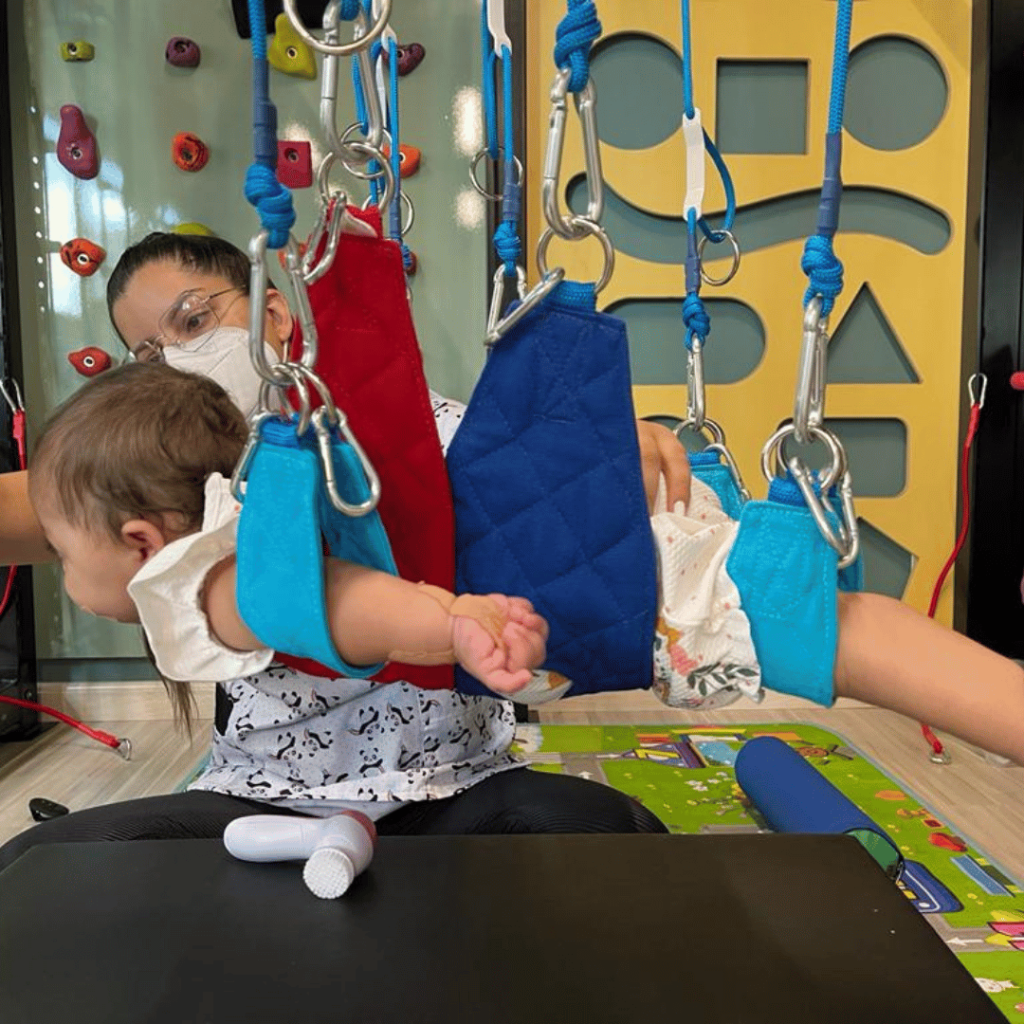
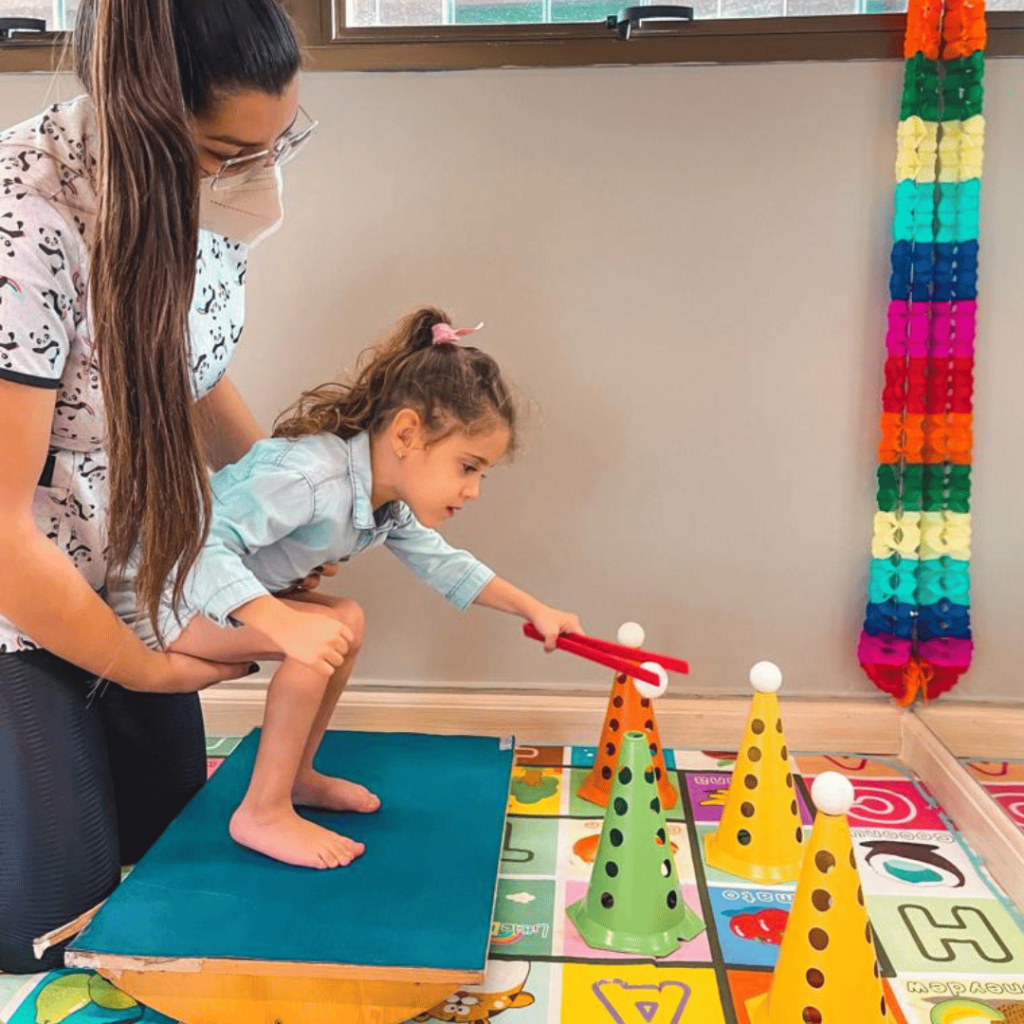
CLINICAL TEAM
At Prosense Clinic, our professionals are dedicated to thoroughly understanding your child, recognizing their strengths and challenges to develop a personalized treatment plan that suits them. Our goal is clear: to enhance your child’s function, quality of life, and ability to face life’s challenges.
Our approach is multidisciplinary, involving physiotherapists, occupational therapists, speech therapists, nutritionists, neurologists, and psychologists. We work together to provide care that considers the child as a whole: body, mind, and soul.
Prosense physiotherapists develop rehabilitation programs that improve mobility, strength, and coordination. Occupational therapists help develop skills for independent daily activities, promoting autonomy and social integration. Meanwhile, speech therapists focus on improving communication and feeding skills, addressing speech, language, and swallowing difficulties.
Our commitment is to offer personalized and compassionate care, tailored to each child’s specific needs, using innovative and evidence-based approaches to ensure the best outcomes. Additionally, we offer home care services, allowing your child to receive specialized care in the comfort of your home.
To ensure comprehensive and excellent pediatric care for your child, schedule a consultation with us. Come visit Prosense and discover how we can make a difference in your little one’s life!
